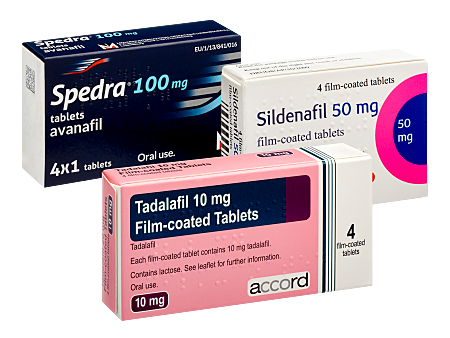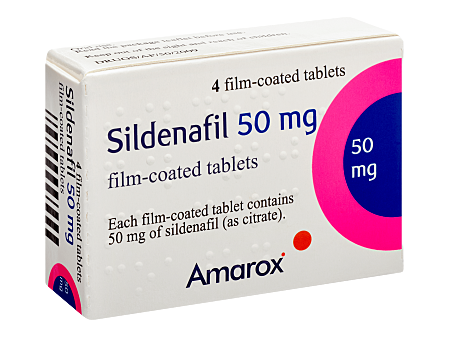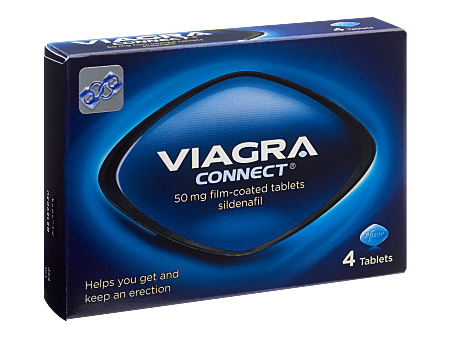Testosterone Boosters For Sexual Performance
How Raising Testosterone Levels Can Help to Improve Sexual Performance
You might have an idea about how testosterone and sexual performance are related. Maybe you’ve heard of products that claim to boost testosterone levels for better sex.
Boosting testosterone to normal levels for people with low testosterone can improve low sex drive, but increasing testosterone levels above that will not help and comes with serious risks.
Find out the best ways to safely boost your testosterone levels to help with sexual performance, what medications or products you should use, and whether you need to boost your testosterone at all.


Medically reviewed by
Dr Simran DeoLast reviewed: 27 Jan 2021
- 1. How Raising Testosterone Levels Can Help to Improve Sexual Performance
- 2. Can Testosterone Boosting Improve Sexual Performance?
- 3. Does Testosterone Boosting Really Work?
- 4. What Medications Boost Your Testosterone?
- 5. Are There Any Ways to Naturally Boost Testosterone?
- 6. Do Testosterone Supplements Work?
- 7. What Are the Side Effects of Boosting Testosterone?
- 8. How Can You Check Your Testosterone Levels?
Can Testosterone Boosting Improve Sexual Performance?
Boosting your levels of testosterone could improve sexual performance if you already have low testosterone. Low testosterone levels can negatively affect your sex life in a few ways, such as:
- Making it harder to get or keep an erection which is hard enough to have sex with – erectile dysfunction
- Lowering your sex drive – low libido
- Causing you to stop or take breaks during sex because you’re too tired – physical fatigue
Normal testosterone levels are considered to be between 10 and 30 nmol/L, and below 10 nmol/L could be a sign of ongoing low testosterone. If you want to know what your testosterone levels are, you can have your testosterone levels checked with a simple at-home test kit.
Most men have normal levels of testosterone. If you have a normal level of testosterone in your body, boosting your testosterone levels higher won’t improve your sexual performance, and could actually be dangerous. It’s best to think about more likely causes of your sex-related problems:
- Erectile dysfunction can still happen if you have a normal level of testosterone in your body. Think about talking to your doctor or pharmacist about erectile dysfunction medications like Viagra instead.
- Having a low sex drive can be caused by a number of different things, like poor physical and mental health. So, there’s a number of different treatments that can help, like having counselling and making healthier lifestyle changes.
- Tiredness during sex can also be caused by poor physical health. Slowly increasing the amount of regular exercise you get could help.
Does Testosterone Boosting Really Work?
There’s a lot of evidence that shows proper medications designed to boost testosterone levels, which can only be prescribed by a licensed doctor, do increase testosterone levels in the blood effectively.
But, outside of these prescribed medications, there are no products or supplements that have been proven to increase testosterone levels in the blood, even if a lot of them are sold as ‘testosterone boosters’.
If you think you have low testosterone levels, getting tested and seeing a doctor to talk about starting treatment and any other ways you can improve your testosterone levels is the right way to go. Testosterone treatment is not suitable for everyone with low testosterone, and if you already have a normal testosterone level, boosting testosterone won’t improve your health.
View Erectile Dysfunction Treatments

Trial pack including affordable generic treatments

Try a range of well-known branded treatments

Please check your spelling or try another treatment name.
What Medications Boost Your Testosterone?
Testosterone medications comes in a few different forms, including:
- Testosterone gels, like Tostran or Testogel, that rub into your skin
- Injections of testosterone
- Testosterone patches, like nicotine patches for quitting smoking, except they release testosterone instead
- Gum and cheek testosterone, a putty-like medication, that releases testosterone into your mouth
- Nasal gels, these go up your nose to introduce testosterone that way
- Implants, like the contraceptive implant, which is inserted under the skin and releases testosterones.
Are there drugs that increase libido in males?
There are no medications available in the UK for treating low sex drive in men. Some medications, like testosterone medications or antidepressants, might be able to improve low sex drive by treating the underlying causes.
Some people mistakenly think that because medications like Viagra improve erections, that they also increase sex drive. The truth is, erectile dysfunction treatments make getting erections easier but only if you’re already turned on. They don’t make you get erections and aren’t proven to increase sex drive.
Are There Any Ways to Naturally Boost Testosterone?
‘Natural’ testosterone-boosting products probably aren’t going to help – see the “Do testosterone supplements work?” section below for more details.
Other than supplements, there are some natural methods for boosting your testosterone levels which have been looked into:
- Resistance training – exercising using weights can increase your testosterone levels straight after you exercise.
- Lowering stress – having a high level of stress in your life can lower your testosterone levels.
- Lowering weight – if you have a BMI that falls in the obese category, your blood testosterone levels may well be low. Losing weight so that you have a healthy BMI can help boost your testosterone levels naturally.
- Time between orgasms – waiting for seven days between orgasms can increase testosterone levels. On the other hand, having sex can also increase testosterone levels.
- Competitions – Testosterone levels may rise when people win competitions.
- Sleeping well – sleep deprivation can decrease your testosterone levels because testosterone naturally rises during sleep. Make sure you have a good sleep schedule to boost your testosterone levels naturally.
Some of these approaches, like managing your weight, stress, and sleep, can help make sure your testosterone levels are at their best. Plus they’re great for your general health too.
On the other hand, throwing yourself into excessive weight-lifting, competition, or scheduling your orgasms is probably not going to be a great idea. Even if they have some impact on testosterone levels, they aren’t necessary for keeping normal levels and we don’t recommend using them to try and give yourself a higher amount of testosterone than normal.
Do Testosterone Supplements Work?
Proper testosterone treatments do work because they involve medication that’s proven to boost the level of testosterone in your body. Compared to this, testosterone boosting supplements are not proven to work in the same way.
There’s been some research into supplements to see what effect they have on testosterone levels, including:
- Potassium
- Vitamin D
- Zinc
- DHEA extract
But since they aren’t proven to work, it’s best to get proper treatment from a doctor if you have low testosterone.
Herbal testosterone boosting pills
There are many products on the market that claim to boost testosterone using a combination of herbal ingredients. Examples include:
- Testofuel
- Testoman
- Testboost
Like supplements, these products aren’t proven to work. They are likely to be a waste of money, and can potentially be harmful to your health. If you do want to try them yourself, at least make sure they’re safe. Look for products which have the Traditional Herbal Registration logo, to make sure they’re at least safe and approved for sale in the UK.
What Are the Side Effects of Boosting Testosterone?
Side effects that can happen when using testosterone replacement therapy include:
- spots, usually found on the back or the chest
- prolonged, painful erection (priapism)
- thickening of the blood caused by the body producing too many red blood cells
- lowered functioning of the liver and changes to blood electrolytes (salts)
- headache
- problems with your prostate, testicles and passing urine
- male breasts (gynaecomastia)
- changes to your mood and sex drive
- high blood pressure
- diarrhoea
- skin reactions including hair loss
- increased weight
- changes to blood cholesterol levels
- possible changes to PSA (prostate specific antigen)
- tiredness and muscle pains
- hot flushes
- problems with your respiratory system such as cough or snoring
- water retention
Ongoing studies are underway to check the risks of cardiovascular disease and prostate cancer with long term testosterone therapy.
Testosterone therapy is known to reduce your future fertility and if you plan to have children in the future your doctor may suggest alternative options for you.
Effects of testosterone abuse
Boosting your testosterone levels higher than normal can be a dangerous thing to do to your health. You could end up with:
- damage to your liver
- your blood cells getting too large
- your blood becoming too thick
- your sperm count dropping, which can lead to infertility
- your testicles shrinking
- erectile dysfunction
- breast development if you’re male (gynecomastia)
Testosterone abuse can also get you in serious legal trouble. You can be sentenced to up to 14 years in prison if you’re found sharing or selling testosterone, or face an unlimited fine. Most professional sports organisations ban the use of testosterone.
How Can You Check Your Testosterone Levels?
You can check your testosterone levels with a quick and easy blood test.
One way you can get tested is to order a testosterone test kit from Superdrug Online Doctor. Any order you make with us is sent in discreet packaging to your preferred address. You take your sample at home and then post it to our lab. Results get sent to your account, along with medical advice from one of our doctors.
You can also get tested through your GP. To get tested, make a face-to-face appointment with your usual GP. If your GP agrees that the test is the right option for you, they’ll arrange for you to have a blood sample taken for testing.
It is always recommended that you follow the instructions before taking the test, as many things can affect the result such as the time of day you take the test.
Current medical guidance advises that for accurate results, you should repeat the test after at least 4 weeks. Ideally, this should be done when you're not feeling ill, as that could affect the results. Changes in the hormone levels mean that testosterone levels are highest in the early morning, so you should have your testosterone levels measured between 7am and 11am. The test should be done after fasting as glucose (blood sugars) can lower testosterone levels.
Sources
- A research on the relationship between ejaculation and serum testosterone level in men (2003) Journal of Zhejiang University [accessed 2 April 2020]
- Anabolic steroid misuse (2018) NHS [accessed 2 April 2020]
- British Society for Sexual Medicine guidelines on adult testosterone deficiency (2017) J Sex Med [accessed 2 April 2020]
- Effects of vitamin D supplementation on androgens in men with low testosterone levels (2019) Eur J Nutr [accessed 2 April 2020]
- Fatty acid intake in relation to reproductive hormones and testicular volume among young healthy men (2017) Asian J Androl [accessed 2 April 2020]
- Male and female salivary testosterone concentrations before and after sexual activity (1992) Physiology & Behavior [accessed 2 April 2020]
- Male hypogonadism: symptoms and treatment (2010) J Adv Pharm Technol Res [accessed 2 April 2020]
- Nebido (2020) EMC [accessed 2 April 2020]
- Obstructive sleep apnea and testosterone deficiency (2019) World J Mens Health [accessed 2 April 2020]
- Testogel (2018) EMC [accessed 2 April 2020]
- Testosterone, and winning and losing in human competition (1989) Hormones and Behavior [accessed 2 April 2020]
- Testosterone physiology in resistance exercise and training: the up-stream regulatory elements (2010) Sports Med [accessed 2 April 2020]
- Zinc status and serum testosterone levels of healthy adults (1996) Nutrition [accessed 2 April 2020]












